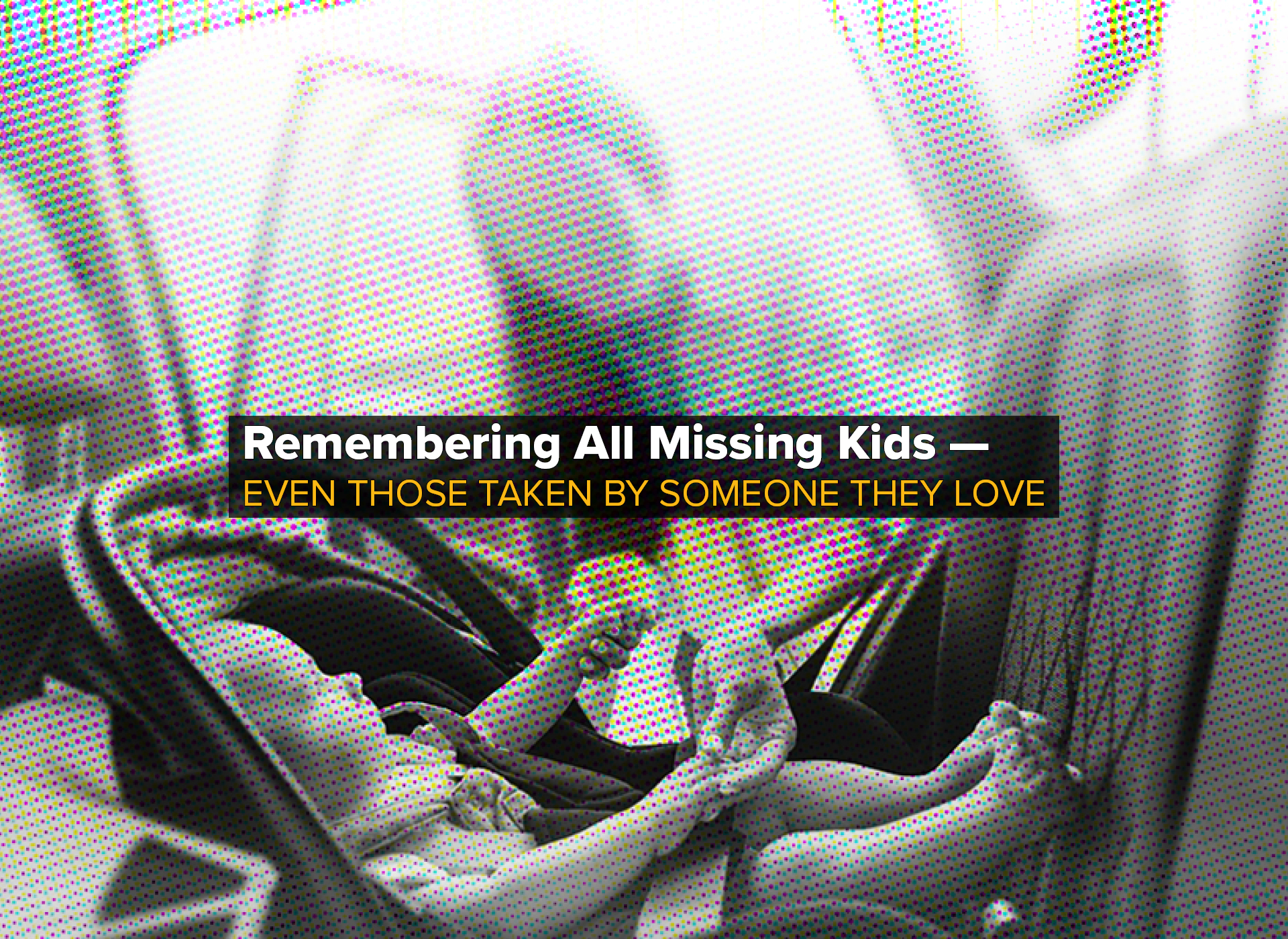Remembering All Missing Kids — Even those taken by someone they love
National Missing Children’s Day, observed on May 25, is a day of remembrance, hope and sometimes, heartbreak for us at the National Center for Missing & Exploited Children (NCMEC). This year, we’re shining a light on one of the most misunderstood types of missing children — those taken by a parent.
While there’s an outpouring of sympathy for children who are abducted by strangers, family abductions – which are the second largest type of missing child after endangered runaways – are often met with skepticism. There's a temptation to treat them as a civil or private matter.
“When a child is taken by a family member, it’s not a custody dispute – it’s a crisis,” said John Bischoff, who oversees our Missing Children Division. “Family abductions are not private matters, they are urgent child protection issues. Your awareness could be the key to their return.”

Former President Ronald Reagan declares May 25 “National Missing Children’s Day” in honor of 6-year-old Etan Patz, who was abducted in New York City on that day in 1979. Outrage over his and other abductions led to the creation of NCMEC. Over the last 41 years, NCMEC has helped recover more than 450,000 missing kids.
Because of the emotionally charged nature of family abductions, however, they can be among the most violent missing child cases. They trigger more than half of all AMBER Alerts – 61% of 157 alerts issued last year – which are reserved for abducted children facing the most imminent danger.
The biggest misconception is that many people believe that the child is safe – at least, they’re with a mom or dad. But every day at NCMEC, we see the damage inflicted on children and their searching parents.
Sometimes these children aren’t enrolled in school or don’t receive medical or dental care in an effort to hide them or through neglect. They also face many other risks and endangerments, including emotional, physical and even sexual abuse.
In 2013, when Ed Mena’s ex-wife fled to Mexico with two of their sons, he not only had to fight the legal system in a different country but also battled the stigma of family abduction back home. People would brush off his concerns because, after all, his boys were “with their mom.”
After a year, the boys were ordered back to Mena, but he was warned it might not be the fairytale reunion he envisioned. Children are often alienated from the searching parent and may not even want to see them.
“That’s ridiculous, we’re very close,“ Mena replied. “They said, ‘We call it the three Ds. Sometimes when they’re taken in that type of situation, they’re told that you’re either dead, you're disinterested or you're dangerous.’”
Mena says there definitely was a transition period but with counseling from NCMEC, he and his sons were soon thriving. Now, he has become an advocate for other parents searching for their children.


There’s often high emotion and sometimes violence associated with many family abductions. In some cases, the abducting parent is with someone who poses an extreme risk to the child, such as a registered sex offender. Sadly, we’ve seen cases in which the taking parent commits murder-suicide.
Just like any missing child, these children need media coverage. Getting their photograph, or age-progression, out to the public is critical to finding them. In the past, media outlets have often hesitated when it comes to family abductions, rarely reporting this type of case.
These days, we’re seeing social media and traditional media sharing more of their stories – and helping bring them home, including Aziz Khan and Andrea Reyes.
14-year-old Aziz was recently found safe in Colorado after investigators say he was taken by his non-custodial mother and her husband in 2017. Then just a week later, we received the astonishing news that Andrea, who was abducted by her non-custodial mother when she was about 2 years old, was found in Mexico – after 25 years.
“A child abducted by a family member is still a missing child,” said Bischoff. “Ignoring these cases puts young lives at risk.”
